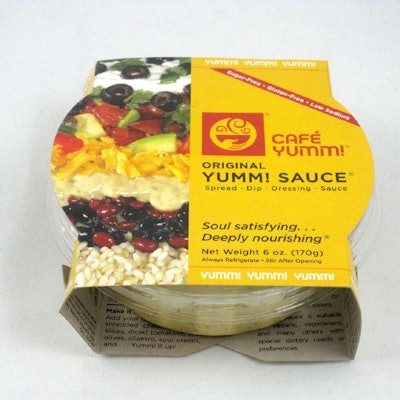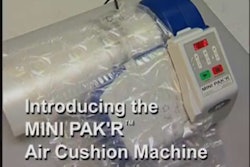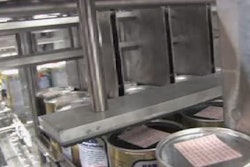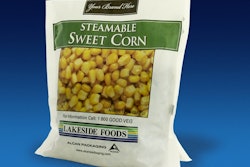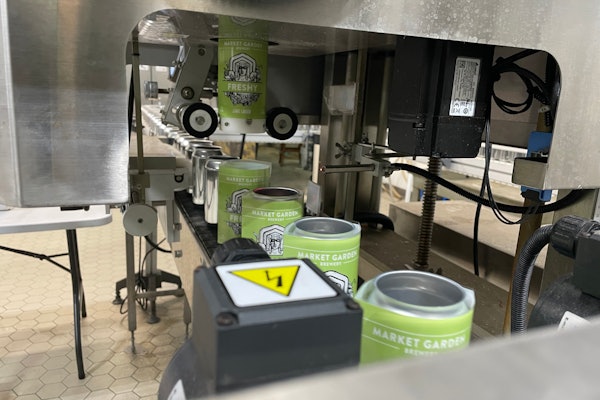An eye toward "greening" resulted in a repackaging from glass jars into sleeved, 6-oz deli-style containers for Café Yumm! Sauce from Beau Delicious! Intl., Eugene, OR. The APET (amorphous PET) containers are molded with the Society of the Plastics Industry #1 recycle coding for PETE.
Introduced in March 2009, the retail-friendly packaging replaces 8-oz glass jars that had only been sold in Café Yumm! restaurants in Oregon.
"This new packaging reduces our environmental footprint in three important ways," explains company co-founder Mark Beauchamp. "First, we are using a lighter-weight, recyclable material. This results in lower shipping costs, thus lower products costs to our customers, and less packaging materials going into the waste stream. Second, using post-consumer paperboard sleeves reduces the use of virgin paper products. And third, using soy-based inks is the environmentally sound choice. You can actually compost the sleeve."
The rounded, custom-designed containers are sealed with a clear barrier-film lidstock and topped with a 4 1/4-in. dia APET overcap.
Beauchamp likes the container's deli-style wide-mouth opening for dipping as well as the sleeve's design, which also permits the packages to stand up on shelf. "It displays well either way," Beauchamp points out.
“The sleeve packaging allows us to use 100-percent post-consumer paperboard and tell more of our story," Beauchamp says. The story is also told on the copy printed on the sleeve's reverse side.
Life-cycle improvements: weight halved
The products' reduced environmental footprint relies on the dramatic improvement in lightweighting. According to Beauchamp:
• A case of six glass jars with shipper weighs 5 lb 13.25 oz.
• A case of six plastic containers with shipper weighs 2 lb 14.65 oz.
"The benefit of this light weighting cannot be overemphasized," declares Beauchamp. It includes transportation throughout the supply chain--from transport of the raw packaging materials to the container manufacturer, then to the packaging distributor, then to the product manufacturer, then to the product distributor, then to the retailer, and then to the consumer. That's followed by transport to a waste hauler or to a recycle hauler, then—hopefully—through the process again, he explains.
"The life-cycle implications of this process are significant," notes Beachamp. "The message this sends graphically and with the light-weighted, recycled and recyclable packaging is that this is a fresh, organic, high-quality product from a company that cares about sustainability."
The packs are packaged on proprietary equipment installed in early 2008, according to operations manager Jeff Williams of co-packer Rising Sun Farms (www.risingsunfarms.com). The products are filled and sealed two-up at rates to 40 containers/min, according to Williams. The nitrogen-flushed products carry a six-month shelf life from date of manufacture.
The containers are thermoformed from custom molds owned by Rising Sun Farms, which declines to identify any of the vendors involved. The co-packer also uses the same containers for its own products, which include pesto sauce. "The containers and sealing film withstand oil-containing products," offers Williams.
The refrigerated products are a retail version of the sauce available at the nine Café Yumm! restaurants located in Oregon. Beauchamp says the new packs will be sold in the restaurants as well as in regional grocery stores, starting in the Portland area.
Available in three varieties of Original, Roasted Garlic, and Chipotle, Café Yumm! Sauce retails for around $4.29.
